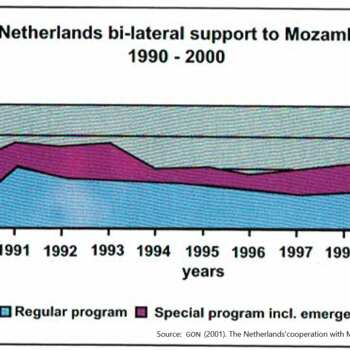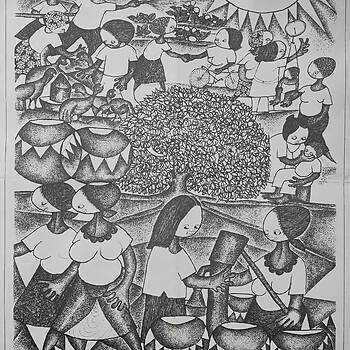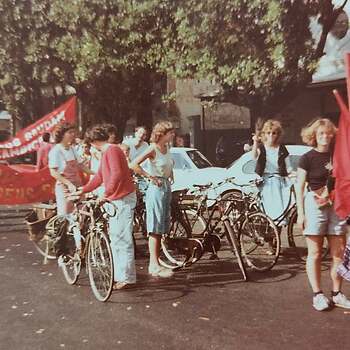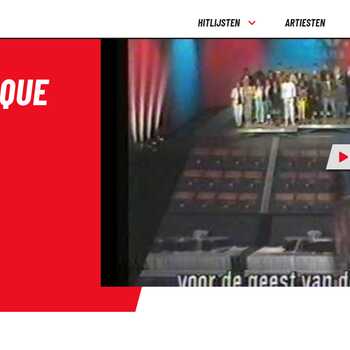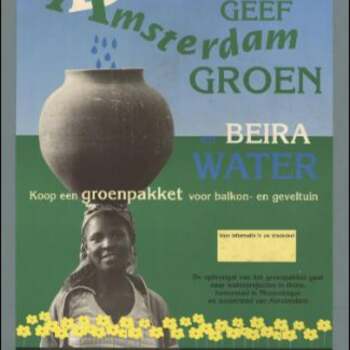Role of Eduardo Mondlane Stichting
From 1975 to 1995, the Eduardo Mondlane Stichting (EMS) had a significant influence on Dutch support to Mozambique (Büscher, 2021, p. 6 and 51-54). In the early years, the relationship between FRELIMO (the Mozambique Liberation Front) and EMS was stronger than that between FRELIMO and the Dutch government, which was only represented at the consular level. EMS played a crucial role until 1995, when the Dutch Embassy in Maputo gained more power, and the role of EMS diminished. Other Dutch NGOs, like the Dutch volunteer service SNV and Oxfam/Novib, expanded their support activities in Mozambique after this shift.
‘Cooperantes’ model
One unique aspect of the early years of development cooperation in Mozambique was the use of so-called "cooperantes". These were foreign experts, typically contracted individually, who worked within Mozambican organizations on local contracts. This model was introduced to fill the gaps left by the Portuguese, who had departed after independence, and to help transfer knowledge to local staff. Initially, EMS was responsible for recruiting professionals from the Netherlands. Shortly after, the Directorate General for International Cooperation (DGIS) and Dienst over Grenzen (DOG), a Christian NGO, started with recruitment of ‘cooperantes’, too.
Bilateral cooperation
Until 1978, the Netherlands was represented in Mozambique by a ‘Chargé d’Affaire’ under the Embassy in Lusaka. The representation was later moved to a branch under the Embassy in Lusaka and later in Harare. In 1989, the Dutch representation in Mozambique was upgraded to formal embassy status.
Dutch bilateral support for Mozambique was focused on various sectors, with humanitarian aid being a major component during and after the internal conflict and in response to several natural disasters. Demining became an important part of the Netherlands' humanitarian assistance. After the 1992 Peace Agreement, the Netherlands concentrated its support on the Central and Northern Provinces, in addition to national institutions and projects in Maputo. In 1995, the Dutch Embassy even opened a Delegation in Nampula.
Jan Pronk
Jan Pronk, a social democrat, was a key figure in the first 25 years of bilateral cooperation between the Netherlands and Mozambique. He served as Minister for Development Cooperation in two terms: from 1973 to 1977 and again from 1989 to 1998. During his first term, Pronk developed a comprehensive policy for bilateral cooperation that involved support through multiple channels. His second term came after the fall of the Berlin Wall in 1989, a time when globalism and neoliberalism began to dominate. This shift promoted a free-market economy with limited state regulation and control. As a result, there was a reform of public institutions, which had to adopt a market-driven approach or face full privatization.
During his second term, Pronk formulated new policies reflecting these trends, along with an increasing focus on global environmental issues, as discussed at the Earth Summit in Rio de Janeiro in 1992. However, according to Dutch scholar Paul Hoebink, the impact of these policies was limited during Pronk’s time in office. The aid was spread too thinly, and Pronk sought to maintain relations with all countries, making it difficult to implement more focused policies. These new policies were more effectively put into action by Pronk’s social-democratic successor, Eveline Herfkens, who had a strong macroeconomic background. By the beginning of the new millennium, Dutch cooperation with Mozambique had undergone a significant shift, with an emphasis on budget support.
Budgets
Understanding the full scope of Dutch financial support to Mozambique in the first decades after independence is complex. According to the publication Brothers from the West (AHM, 2005), Dutch bilateral aid to Mozambique between 1975 and 1985 was estimated at 250 million guilders (around 120 million euros), half of which was provided as loans. Other sources suggest that Dutch annual financial support to Mozambique varied between 13 to 48 million euros per year until 2000, with around 10% allocated to water projects (IOB 2012; GON 1999, GON 2001). This relatively modest aid budget was due in part to the fact that the total Dutch aid budget had to be divided among 50 to 78 countries (Hoebink, 2002). It was also influenced by IMF policies, which limited aid inflows to Mozambique during the 1990s to avoid exacerbating inflation (Joseph Hanlon 1998).
References/Further reading
AHM Arquivo Histórico Moçambique and NIZA Nederlands Instituut voor Zuidelijk Afrika (2005). Brothers from the West. Solidarity in the Netherlands with Mozambique 1962 - 2005. Amsterdam: NIZA
Büscher Chris (2021). Water aid and trade contradictions: Dutch aid in the Mozambican waterscape under contemporary capitalism; PhD thesis University of London – SOAS
GON (1999). brief werkbezoek aan Mozambique februari 1999; (MoFA; letter to Parliament);
GON (2001). The Netherlands’ cooperation in Mozambique; EKN June 2001
Hanlon J. (1998). ‘Van wie is Mozambique?; IMF en donoren belemmeren wederopbouw’ in: Zuidelijk Afrika voorjaar 1998 Jrg. 2, nr. 1;
Hoebink P. (2002). 'Van wervelwind tot nachtkaars? Vier jaar Eveline Herfkens op Ontwikkelingssamenwerking'; in Internationale Spectator April 2002 – LVI – nr. 4; pg 191 – 198
IOB (2012). Budget support: Conditional Results; IOB Policy Review No 369; table 3.1;
Kazimierczuk A. (2015). Historical overview of development policies and institutions in the Netherlands, in the context of private sector development and (productive) employment creation; Leiden ASC Working Paper 122/2015;
Scholtens, H. (2018). 'Onafhankelijkheid nog maar het begin!' van solidariteit met antikoloniale strijd, naar betrokkenheid bij de socialistische wederopbouw van Mozambique. De Eduardo Mondlane Stichting als case study, 1969-1978. MSc Thesis, Universiteit van Amsterdam
Wit de, T. (2008). A Luta Continua? We blijven ze steunen. Relatie tussen Nederland en Mozambique 1973 - 1983. MSc Thesis, Universiteit Utrecht
Video
Original version: 20/12/2024 D. Bouman
